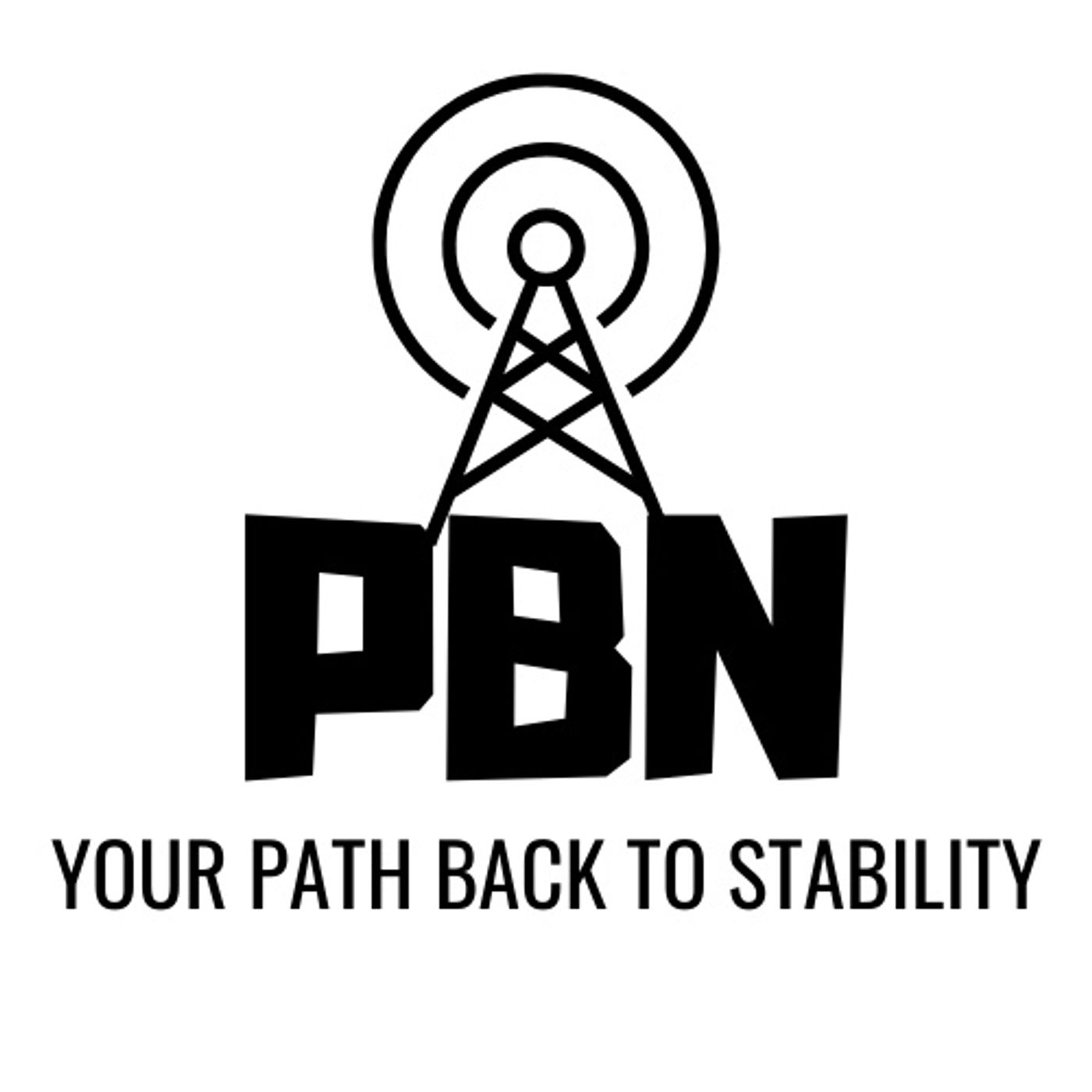.jpg)
The Common Sense Practical Prepper
Welcome to The Common Sense Practical Prepper: No doom, no zombies—just straightforward, budget-friendly tips for real-life preparedness. From food storage myths to bartering basics, I share what works for everyday folks.
I’ll also dive into situational awareness to stay sharp in any crisis, personal safety tips to protect yourself. Each episode ties real-world examples to current events, like recent storms or supply shortages, to keep you prepared. Have feedback or ideas?
Email practicalpreppodcast@gmail.com.
Support the podcast with Augason Farms, your go-to for reliable food storage. Use code PODCASTPREP for 10% off your order!
Please check out Augason Farms. Affiliate link below. Use PODCASTPREP at checkout for an additional 10% off your order.
https://augasonfarms.com?sca_ref=9315862.VpHzogdDNu
The Common Sense Practical Prepper
Urban Survival: Securing Your Space When Options Are Limited
Use Left/Right to seek, Home/End to jump to start or end. Hold shift to jump forward or backward.
Augason Farms
Support the podcast. Click on my affiliate link and use coupon code PODCASTPREP for 10% discount!
Ever wonder how to prep effectively when you're living in an apartment? The challenges of limited space, shared walls, and lack of storage don't have to mean limited preparation options.
Today we're diving deep into practical apartment prepping strategies that don't require a basement, garage, or dedicated storage room. I'm sharing straightforward solutions to three critical areas: securing your entry points, discreetly storing your supplies, and creating an effective bug-out strategy.
Your front door represents your primary security point in apartment living. Learn how to strengthen this crucial barrier with proper deadbolts, security bars, and early warning systems that buy you precious time during emergencies. I break down why most standard apartment locks fail and what specific upgrades make the biggest difference without breaking your budget or lease agreement.
Storage challenges require creative thinking. Discover how under-bed containers, strategically labeled and packed with decoy items, can hide your emergency supplies in plain sight. I share specific techniques for concealing food and gear using everyday furniture and household items that won't raise eyebrows when maintenance or visitors enter your space.
Perhaps most importantly, I address the urban bug-out strategy that many preppers get dangerously wrong. Find out why your tactical backpack might actually put you at risk during evacuations, and how blending in with ordinary-looking gear could save your life when leaving your apartment during emergencies.
Whether you're new to prepping or adapting your preparedness strategy to apartment living, these practical tips will help you maximize your readiness without compromising your living space or announcing your preparations to the world. Ready to transform your apartment into a prepared, secure space without sacrificing comfort or style? Let's get started.
Support the podcast. Click on my affiliate link and use coupon code PODCASTPREP for 10% discount!
Disclaimer: This post contains affiliate links. If you make a purchase, I may receive a commission at no extra cost to you.
Have a question, suggestion or comment? Please email me at practicalpreppodcast@gmail.com. I will not sell your email address and I will personally respond to you.
Hey, all this is Keith and welcome back to the Common Sense Practical Prepper podcast. This is your one-minute survival tip for August 13th 2025. Coming to you for the last time this week from our affiliate office in Dallas, Texas. First, I want to take a second to thank everybody who has come to the site in the last couple weeks to listen to the podcast. I've noticed a pretty big increase in traffic and I appreciate those folks that have left a comment, that have liked, that have followed and that have shared the podcast with other people. I really do appreciate it.
Speaker 1:Okay, let's talk about apartment prepping or urban prepping, and specifically we're going to talk about securing your door, discreetly storing your supplies and then having a bug out bag. So living in an apartment does not mean that you can still not prepare for certain situations, can still not prepare for certain situations. Now, in an apartment, you're kind of in a unique situation More than likely multiple people on the floor. Some buildings might connect elevator stairs, so you have a few challenges that folks who live in condos or who live in a single family dwelling do not have. Let's talk about securing your front door. Now, this matters because this is your primary entry and exit, your primary egress and ingress to your particular apartment. You can get a more robust or pretty beefy deadbolt $40, $50, $60. And what it comes down to with a deadbolt is how it is secured into the frame or into the door jamb itself. Most of your deadbolts have very short, not very robust screws that go into the door frame I'll just call it the door frame from now on. It depends on how your door frame is put together. If there's a lot of space between where the dead bolt is going in and then the door frame, that's wasted space, that's not providing any security. You can also get all sorts of like security bars that go across the door, that go at the bottom of the door, that keep it from being kicked in. And you also can get an alarm. It's about the size of a doorstop and then the event that the front door is breached, you get a very loud alarm. So when you hear that alarm, there has been a breach at your front door. That's going to give you a few seconds, a little bit of a head start, to decide what you're going to do after that. Let's talk about securing your supplies and trying to be discreet because, again, in an apartment you have a finite area, finite space, maybe only a couple of closets. You don't have a garage, maybe not have an attic. You may not have an extra room that is your dedicated pantry, and maybe there's not a large enough pantry in your kitchen that will store your regular old food that you eat on a daily basis and then your prepping supplies.
Speaker 1:One thing to consider is storing your prepping food, your prepping supplies, under your bed. You can get the totes, the Rubbermaid totes that are either opaque or kind of translucent, the heavy, dark plastic or the light plastic that you can kind of see through. What folks have done is put a label on them winter clothes, hoodies, blankets and if you can see through or partially see through the tubby, go ahead and put a blanket on the outside. So in the event that someone has entered your home and they look under the bed, they're going to see a little tubby that says winter clothes and they're going to see like a balled up jacket or what looks like a jacket or a hoodie. Okay, there's a chance they're going to leave it alone, they're not going to pull it out and they're not going to go through it. Same thing with the top, If they were to take it out and pull the top off. What are they going to see? A couple Afghans, a couple quilts, a couple blankets. There's a chance that they won't dig any deeper and then just bypass it and go on to something else. There are Ottomans that you can lift up the top and you can store product in stores inside there. Now, I would assume that the purpose of those is to put blankets, pillows, extra storage so you don't have to keep the blankets and pillows out in the open, taking up room. Go ahead and use that to your advantage and put that stuff in the ottoman. They can also be stored in tables. Just be creative. So there's plenty of places in an apartment. Don't let the fact that you live in a smaller dwelling, an apartment, don't let that discourage you from getting your preps together.
Speaker 1:Finally, let's talk about a go bag. The go bag needs to be readily available, almost at your fingertips, near your front door. Again, you don't have to spend $80 or $100 on a backpack. What you can use for a go bag is very small If you're leaving an apartment. What you can use for a go bag is very small If you're leaving an apartment. Go ahead and pack for 24 to 36 hours, Keep it light. And when you look at a different backpack to purchase, don't get the ones that tactical backpacks with the molly and the stuff. You can put stickers all over it, hang all sorts of gear from it.
Speaker 1:What you want to do when you leave your apartment, regardless of the situation, you want to blend in. You don't want to have the tactical backpack on your shoulder going down the road in the event there's an evacuation or some type of emergency, because what people are going to see? They're going to see a tactical backpack and they're going to say, uh-oh, that person knows what they're doing. I bet they have at least a gun, a knife, I bet they're one of those crazy preppers and they're going to have all the supplies that we need.
Speaker 1:So blend in, have something conspicuous, just you know, a Nike bag or your favorite sports team or something just bland. Don't make it bright pink or bright yellow, but just green, black, blue, just your regular old backpack that you send your kids to school with or that you carried around in college. That sort of thing Don't be flashy, Don't have you know all sorts of stuff hanging off of it, because you're just making yourself a potential target. All right, folks, thanks for stopping by again, Thanks so much for listening, Thanks for liking, Thanks for sending out a review and thanks for sharing and, as always, be safe out there, take care of one another and until next time.
Podcasts we love
Check out these other fine podcasts recommended by us, not an algorithm.

Casual Preppers Podcast - Prepping, Survival, Entertainment.
Casual Preppers